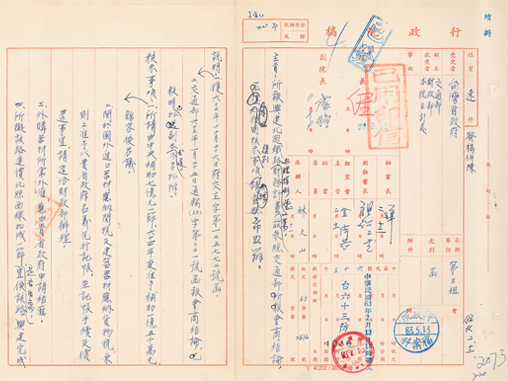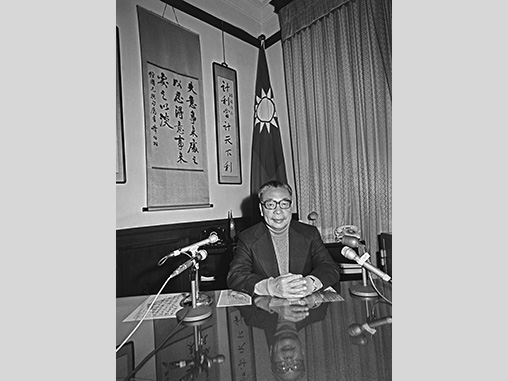1972.06.01 - 1978.05.20
A native of Fenghua, Zhejiang, Chiang Ching-kuo also served as defense minister and the nation’s president. As premier, he boosted economic development by promoting the Ten Major Construction Projects and the Twelve New Development Projects. Chiang also implemented a 10-point administrative reform, promoted young Taiwanese elites to higher government positions, restructured the parliament, and increased the number of legislators representing Taiwan. Under his leadership, the nation achieved a series of economic breakthroughs known as the “Taiwan experience.”
Important Events
- 1972.06.08Premier Chiang proposes a 10-point reform plan for the nation’s administrative officials to follow.
- 1972.09.27Premier Chiang holds an agricultural development seminar and announces nine measures to boost rural economic development.
- 1972.09.29The ROC’s formal diplomatic relations with Japan are severed.
- 1973.02.22The Executive Yuan Council passes the draft of the Agricultural Development Act, which is approved by the Legislative Yuan on August 22, 1973 and promulgated by the president on September 3, 1973.
- 1973.03.20Premier Chiang submits to the legislature a special budget to accelerate rural development, allocating NT$2 billion to improve rural life and raise farmers’ income.
- 1973.10.18The Executive Yuan proposes price stabilization measures amid the first oil crisis. An economic stabilization program is also approved on January 26, 1974 to stabilize oil, electricity and transportation prices; change the price structure of essential goods; adjust deposit and loan interest rates; and raise wages for military employees, civil servants and teachers.
- 1974.09.20Premier Chiang announces nine infrastructure projects and adds another nuclear power plant project to form the Ten Major Construction Projects.
- 1977.12.08Premier Chiang instructs the Council for Economic Planning and Development to map out the Twelve New Development Projects.




